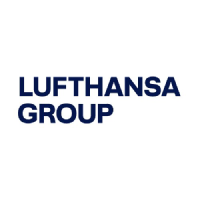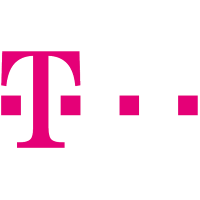JANUARY 28, 2000 VOL. 26 NO. 3
Money to Burn
Hong Kong and Japan converge in a Net investment bloc
By ALLEN T. CHENG
When Richard Li Tzar-kai early last year announced plans to build a
modern campus that would make Hong Kong a regional information
technology hub, more than a few local observers thought the initiative
a bit disconnected. Hong Kong is a financial center and a trading
entrepot. But it has almost no native technology industry to build
on, nor were foreign software or hardware makers likely to set up
headquarters or manufacturing plants in the pricey Chinese city. A
more likely digital destination seemed to be Singapore, owing to its genteel standard
of living and well-articulated government policies stimulating the technology sector.
However, thanks to an influx of venture capital, a bustling new
stock market for start-up companies and scores of blossoming
Internet ventures, Hong Kong's bid to kindle an IT industry is
looking anything but misguided. The latest coup: a tie-up between
Li's Pacific Century CyberWorks (PCCW) and Hikari Tsushin Inc.,
Japan's second largest Internet investment company. That should
help to establish the SAR as a breeding ground for e-commerce
companies.
The deal calls for PCCW and Hikari to jointly acquire Hong
Kong-listed battery maker Golden Power International Holdings,
with the Japanese company holding 51% and PCCW 20% (the
remainder is held by previous owners and individual
shareholders).
Renamed Hikari Tsushin International (HTI), the new entity
will be used as an investment vehicle to launch e-commerce
initiatives in Hong Kong and throughout Southeast Asia.
HTI seems destined to become a major player by dint of the
market capitalization of its parents.Hikari, which has as
its core business a chain of 1,920 mobile phone retail stores
in Japan, is worth an estimated $47 billion, making it
10th-largest company on the Tokyo exchange. PCCW shares are
worth about $18 billion (Japan's Softbank, Asia's pre-eminent
Net investor, has a stunning market cap of roughly $94 billion).
Stock market capitalization is an important benchmark,
because many cyber-deals are consummated through an exchange
of shares. Investment capital is abundant; PCCW alone has
some $200 million in cash.
Hikari's arrival "signifies Hong Kong's leadership role as
a cyber-base in Asia," declares Li - who also got the
Japanese company to commit to
future tenantship in his $1.6 billion Cyber-port project,
joining Microsoft, Sun Microsystems, Oracle, Cisco Systems
and Softbank. Merrill
Lynch analyst Matei Mihalca does not go quite that far,
but he agrees that Hong Kong's private investment environment
"is becoming more supportive of the Internet." Singapore,
says Mihalca, "hasn't made as many efforts [in the private arena].
Most have been initiatives by the
government and universities." Singapore last year established
a $1 billion fund to foster "technopreneurship." The Lion City's
best-known private source of Internet venture funding is PC
soundcard maker Creative Technology's $50-million war chest.
"Hong Kong is a very big financial center," says Shigeta
Yasumitsu, Hikari's 36-year-old CEO, "and Pacific Century CyberWorks
is a wonderful company. That's why we chose Hong Kong." Li's
legendary clout was a big draw. The 33-year-old son of Hong Kong
tycoon Li Ka-shing travels in international business circles and
is a prolific dealmaker. The two men professed friendship during
a press conference announcing the partnership.
Mihalca says the partnership benefits both. PCCW gains access to
the Japanese market and greater exposure to the budding marketplace
for wireless delivery of Internet content via mobile phones. Li's
company started out with ambitions to serve high-speed Internet
access to much of Asia via satellite. But PCCW has rapidly expanded
to become a leading Net investor second in Asia only to Softbank.
"It could be argued that in the last month PCCW has come of age as
a global Internet player," Mihalca wrote in a recent report on the
company.
Meanwhile, Hikari enlarges its footprint in Hong Kong, China and
Southeast Asia. The company has already sunk some $100 million in
numerous regional start-ups, among them Hong Kong Net portal developer Outblaze.
Skeptics question whether Hikari's move is wise given that it can
just as easily invest in Asia from its home base in Japan. Some
maintain that Hong Kong, with 6.8 million people, doesn't have the
mass to generate enough worthy investments to justify Hikari's
listing there. Not so, says Shigeta, a college drop-out who
founded Hikari in 1988. "There are many companies to look at,
and there will be more to follow," he says. Li has estimated the
SAR is now home to some 300 IT start-ups, most of them formed in
the last 12 months.
Besides, Hikari is looking not solely to Hong Kong but to the
mainland - where Li has many ties - for future investment
candidates. "Needless to say there are various restrictions for
investing in the Internet in China, but the rules are changing,"
Shigeta says. "We have to establish a foothold here."
Singapore, of course, lacks Hong Kong's proximity to China, a
country expected to become the largest Internet market in the
world within the next five to 10 years. But Hikari's choice has
not dampened expectations that Singapore will continue to compete
as an e-commerce hub. "Hong Kong and Singapore each have their
strengths, and I do not see this competition as a zero-sum game,"
says Wong Toon King, chairman of SilkRoute Holdings, a leading
e-commerce company. "Hikari Tsushin's move into Southeast Asia
is good news for many aspiring start-ups
throughout the region."
Wong speaks from experience. His Singapore-based SilkRoute
Ventures subsidiary took on a $26 million investment from PCCW
last year. After all, the Internet investment game is not
necessarily about where you make your bed. It's about who you
are in bed with.
cnn.com/ASIANOW/asiaweek/magazine/2000/0128/biz.cyberworks.html
Money to Burn
Hong Kong and Japan converge in a Net investment bloc
By ALLEN T. CHENG
When Richard Li Tzar-kai early last year announced plans to build a
modern campus that would make Hong Kong a regional information
technology hub, more than a few local observers thought the initiative
a bit disconnected. Hong Kong is a financial center and a trading
entrepot. But it has almost no native technology industry to build
on, nor were foreign software or hardware makers likely to set up
headquarters or manufacturing plants in the pricey Chinese city. A
more likely digital destination seemed to be Singapore, owing to its genteel standard
of living and well-articulated government policies stimulating the technology sector.
However, thanks to an influx of venture capital, a bustling new
stock market for start-up companies and scores of blossoming
Internet ventures, Hong Kong's bid to kindle an IT industry is
looking anything but misguided. The latest coup: a tie-up between
Li's Pacific Century CyberWorks (PCCW) and Hikari Tsushin Inc.,
Japan's second largest Internet investment company. That should
help to establish the SAR as a breeding ground for e-commerce
companies.
The deal calls for PCCW and Hikari to jointly acquire Hong
Kong-listed battery maker Golden Power International Holdings,
with the Japanese company holding 51% and PCCW 20% (the
remainder is held by previous owners and individual
shareholders).
Renamed Hikari Tsushin International (HTI), the new entity
will be used as an investment vehicle to launch e-commerce
initiatives in Hong Kong and throughout Southeast Asia.
HTI seems destined to become a major player by dint of the
market capitalization of its parents.Hikari, which has as
its core business a chain of 1,920 mobile phone retail stores
in Japan, is worth an estimated $47 billion, making it
10th-largest company on the Tokyo exchange. PCCW shares are
worth about $18 billion (Japan's Softbank, Asia's pre-eminent
Net investor, has a stunning market cap of roughly $94 billion).
Stock market capitalization is an important benchmark,
because many cyber-deals are consummated through an exchange
of shares. Investment capital is abundant; PCCW alone has
some $200 million in cash.
Hikari's arrival "signifies Hong Kong's leadership role as
a cyber-base in Asia," declares Li - who also got the
Japanese company to commit to
future tenantship in his $1.6 billion Cyber-port project,
joining Microsoft, Sun Microsystems, Oracle, Cisco Systems
and Softbank. Merrill
Lynch analyst Matei Mihalca does not go quite that far,
but he agrees that Hong Kong's private investment environment
"is becoming more supportive of the Internet." Singapore,
says Mihalca, "hasn't made as many efforts [in the private arena].
Most have been initiatives by the
government and universities." Singapore last year established
a $1 billion fund to foster "technopreneurship." The Lion City's
best-known private source of Internet venture funding is PC
soundcard maker Creative Technology's $50-million war chest.
"Hong Kong is a very big financial center," says Shigeta
Yasumitsu, Hikari's 36-year-old CEO, "and Pacific Century CyberWorks
is a wonderful company. That's why we chose Hong Kong." Li's
legendary clout was a big draw. The 33-year-old son of Hong Kong
tycoon Li Ka-shing travels in international business circles and
is a prolific dealmaker. The two men professed friendship during
a press conference announcing the partnership.
Mihalca says the partnership benefits both. PCCW gains access to
the Japanese market and greater exposure to the budding marketplace
for wireless delivery of Internet content via mobile phones. Li's
company started out with ambitions to serve high-speed Internet
access to much of Asia via satellite. But PCCW has rapidly expanded
to become a leading Net investor second in Asia only to Softbank.
"It could be argued that in the last month PCCW has come of age as
a global Internet player," Mihalca wrote in a recent report on the
company.
Meanwhile, Hikari enlarges its footprint in Hong Kong, China and
Southeast Asia. The company has already sunk some $100 million in
numerous regional start-ups, among them Hong Kong Net portal developer Outblaze.
Skeptics question whether Hikari's move is wise given that it can
just as easily invest in Asia from its home base in Japan. Some
maintain that Hong Kong, with 6.8 million people, doesn't have the
mass to generate enough worthy investments to justify Hikari's
listing there. Not so, says Shigeta, a college drop-out who
founded Hikari in 1988. "There are many companies to look at,
and there will be more to follow," he says. Li has estimated the
SAR is now home to some 300 IT start-ups, most of them formed in
the last 12 months.
Besides, Hikari is looking not solely to Hong Kong but to the
mainland - where Li has many ties - for future investment
candidates. "Needless to say there are various restrictions for
investing in the Internet in China, but the rules are changing,"
Shigeta says. "We have to establish a foothold here."
Singapore, of course, lacks Hong Kong's proximity to China, a
country expected to become the largest Internet market in the
world within the next five to 10 years. But Hikari's choice has
not dampened expectations that Singapore will continue to compete
as an e-commerce hub. "Hong Kong and Singapore each have their
strengths, and I do not see this competition as a zero-sum game,"
says Wong Toon King, chairman of SilkRoute Holdings, a leading
e-commerce company. "Hikari Tsushin's move into Southeast Asia
is good news for many aspiring start-ups
throughout the region."
Wong speaks from experience. His Singapore-based SilkRoute
Ventures subsidiary took on a $26 million investment from PCCW
last year. After all, the Internet investment game is not
necessarily about where you make your bed. It's about who you
are in bed with.
cnn.com/ASIANOW/asiaweek/magazine/2000/0128/biz.cyberworks.html



















